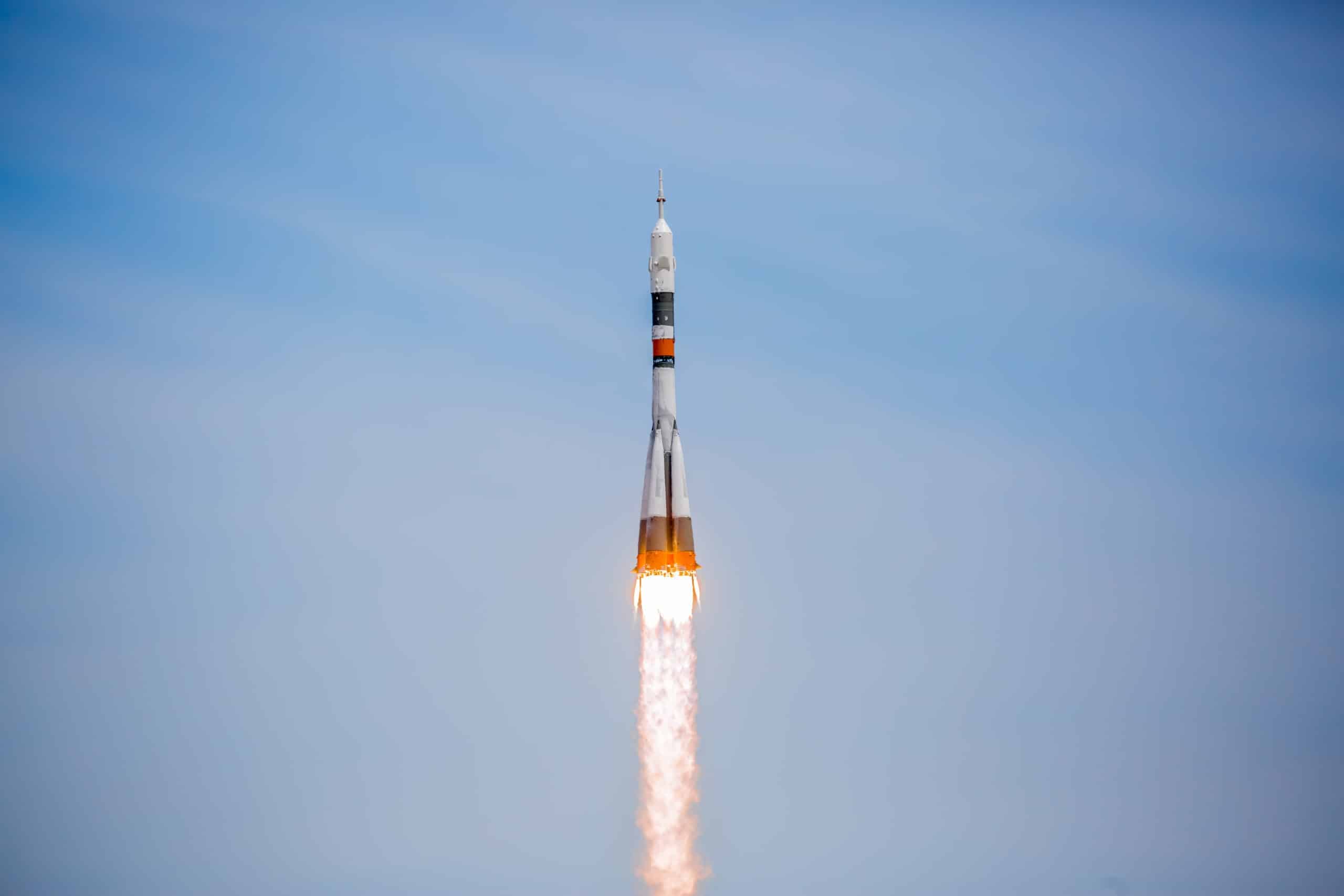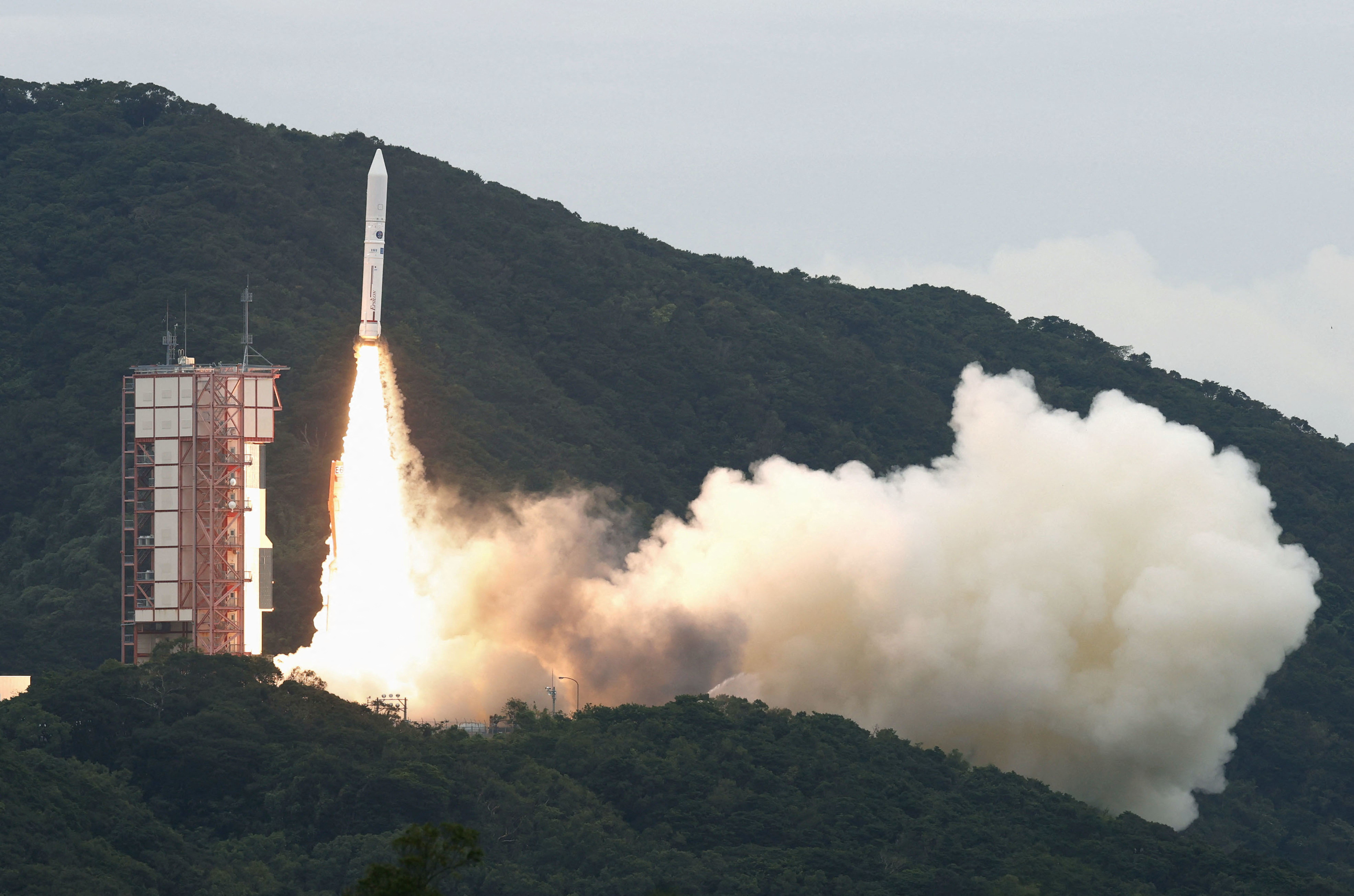Epsilon: The Japanese Launch Vehicle For New Era Space Exploration: Epsilon, the advanced Japanese launch vehicle, is a game-changer for space exploration, opening new possibilities and ushering in a new era of scientific discovery.
Editor's Notes: Epsilon: The Japanese Launch Vehicle For New Era Space Exploration has published today date as an essential reading for anyone interested in the future of space exploration. This cutting-edge launch vehicle is revolutionizing space missions, and our team has been analyzing and gathering information to present a comprehensive guide to help you understand its significance and capabilities.
Through our in-depth analysis, we have compiled this Epsilon: The Japanese Launch Vehicle For New Era Space Exploration guide to empower our readers with the knowledge to make informed decisions about space exploration advancements.
Key differences or Key takeways, provide in informative table format
FAQ
This FAQ section will provide detailed responses to frequently asked questions about Epsilon: The Japanese Launch Vehicle For New Era Space Exploration.

The Epsilon Launch Vehicle: Status and Future – BIS Shop - Source bis-space.com
Question 1: What is the Epsilon launch vehicle?
Answer: The Epsilon is a three-stage solid-propellant launch vehicle developed by the Japan Aerospace Exploration Agency (JAXA). It is designed to launch small satellites into low Earth orbit and is particularly suited for scientific research missions.
Question 2: What are the key features of the Epsilon launch vehicle?
Answer: The Epsilon has several key features, including its solid-propellant rocket motors, which provide high thrust and reliability. It also features a lightweight and compact design, making it cost-effective and easy to transport. Additionally, the Epsilon has a high launch accuracy and flexibility, allowing it to accommodate various payload configurations.
Question 3: What is the launch history of the Epsilon launch vehicle?
Answer: The Epsilon has had a successful launch history, with six successful launches to date. Its maiden flight took place in 2013, and it has since launched various satellites, including scientific satellites, Earth observation satellites, and technology demonstration satellites.
Question 4: What are the future plans for the Epsilon launch vehicle?
Answer: JAXA plans to continue using the Epsilon launch vehicle for future scientific research missions. It is expected to play a significant role in Japan's space exploration program, supporting the launch of small satellites and enabling scientific discoveries.
Question 5: How does the Epsilon launch vehicle compare to other launch vehicles?
Answer: The Epsilon is comparable to other small satellite launch vehicles in terms of its capabilities and performance. It offers a cost-effective and reliable solution for launching small satellites into low Earth orbit. However, it has specific advantages, such as its high launch accuracy and flexibility, which make it suitable for scientific research missions.
Question 6: What are the benefits of using the Epsilon launch vehicle?
Answer: The Epsilon launch vehicle provides several benefits, including its cost-effectiveness, reliability, and flexibility. It enables the launch of small satellites at a lower cost compared to larger launch vehicles. Additionally, its solid-propellant rocket motors offer high thrust and reliability, ensuring a successful launch. The Epsilon's flexibility allows it to accommodate various payload configurations, making it suitable for a wide range of scientific research missions.
In conclusion, the Epsilon launch vehicle is a valuable asset in Japan's space exploration program. Its capabilities and successful launch history make it a reliable and cost-effective solution for launching small satellites into low Earth orbit. The Epsilon is expected to continue playing a significant role in supporting scientific research missions and enabling new discoveries in space.
To learn more about Epsilon: The Japanese Launch Vehicle For New Era Space Exploration, please refer to the provided link.
Tips
Epsilon is Japan's next-generation launch vehicle designed for flexible and cost-effective access to space. The vehicle incorporates innovative technologies and features to meet the evolving demands of space exploration and scientific research.
Tip 1: Enhanced Flexibility
Epsilon's modular design allows it to accommodate a wide range of payloads, from small satellites to large Earth observation platforms. The vehicle's multiple launch pads and launch windows provide versatility in mission planning, enabling efficient access to various orbits.
Tip 2: Reduced Launch Costs
By utilizing lightweight materials, simplifying manufacturing processes, and employing efficient propulsion systems, Epsilon significantly reduces launch costs compared to traditional launch vehicles. This cost-effectiveness enables more frequent and affordable missions.
Tip 3: Improved Reliability
Epsilon incorporates advanced avionics systems, redundant components, and thorough quality control measures to ensure high mission reliability. The vehicle has undergone rigorous testing and simulations to verify its performance under various conditions.
Tip 4: Environmental Sustainability
Epsilon uses liquid hydrogen and liquid oxygen as propellants, which produce minimal environmental impact. The vehicle's design minimizes fuel consumption and emissions, contributing to sustainable space exploration practices.
Tip 5: Global Collaboration
The Epsilon project involves international collaboration with partners from various space agencies. This collaboration fosters knowledge sharing, technology transfer, and the development of a global space infrastructure.
Epsilon's advanced capabilities and innovative features make it a promising launch vehicle for a new era of space exploration. By providing enhanced flexibility, reduced costs, improved reliability, environmental sustainability, and global collaboration, Epsilon enables the advancement of scientific research, space applications, and human exploration beyond Earth's atmosphere.
Epsilon: The Japanese Launch Vehicle For New Era Space Exploration
Epsilon, a four-stage solid-fuel rocket, marks Japan's ambitious leap into the new era of space exploration. Unveiling its potential, this launch vehicle embodies several key aspects:
- Compact and Lightweight: Streamlined design maximizes payload capacity.
- Cost-Effective: Simplified structure and mass production lower launch costs.
- Versatile: Adaptable to diverse missions, including Earth observation and planetary exploration.
- Reliable: Proven track record with successful launches.
- Scientific Exploration: Facilitates deployment of satellites for scientific research.
- International Collaboration: Fosters partnerships and knowledge exchange with global space agencies.
These aspects converge to make Epsilon a formidable launch vehicle for Japan's ambitious space exploration endeavors. Its compactness and cost-effectiveness enable frequent launches, while its versatility allows for a wide range of missions. The reliable platform ensures successful satellite deployments, advancing scientific knowledge and contributing to global space exploration efforts.

Epsilon Launch Vehicle - Aerospace Manufacturing - Source aero-space.us

Japan's Epsilon rocket failed after launch - Kyodo | Reuters - Source www.reuters.com
Epsilon: The Japanese Launch Vehicle For New Era Space Exploration
The Epsilon rocket is a three-stage solid-propellant launch vehicle developed by the Japan Aerospace Exploration Agency (JAXA). It is designed to launch small satellites weighing up to 1.2 tons into low Earth orbit (LEO). The Epsilon rocket is intended to replace the M-V rocket, which was retired in 2006.

Artemis 1: NASA Successfully Launches Their Heaviest Rocket, Ushering - Source in.mashable.com
The Epsilon rocket made its first flight in 2013. It has since been used to launch several successful missions, including the Hisaki satellite in 2013, the SPRITE-SAT satellite in 2016, and the Arase satellite in 2016.
The Epsilon rocket is an important part of JAXA's plans for future space exploration. It will be used to launch a variety of scientific missions, including the Martian Moons eXploration (MMX) mission in 2024. The MMX mission will send a spacecraft to the Martian moon Phobos to collect samples of its surface.
| Key Insight | Example | Practical Significance |
|---|---|---|
| The Epsilon rocket is a significant advancement in Japanese space launch technology. | The Epsilon rocket is the first Japanese launch vehicle to use solid propellants. | The use of solid propellants makes the Epsilon rocket more reliable and less expensive than previous Japanese launch vehicles. |
| The Epsilon rocket is an important part of JAXA's plans for future space exploration. | The Epsilon rocket will be used to launch a variety of scientific missions, including the MMX mission to the Martian moon Phobos. | These missions will help us to learn more about the Martian system and its potential for future human exploration. |
Conclusion
The Epsilon rocket is a key part of Japan's space exploration plans. It is a reliable and cost-effective launch vehicle that can be used to launch a variety of scientific missions. The Epsilon rocket will play an important role in helping us to learn more about the solar system and our place in it.
The development of the Epsilon rocket is a testament to the skill and dedication of Japanese engineers. It is a symbol of Japan's commitment to space exploration and its desire to play a leading role in the future of space science.